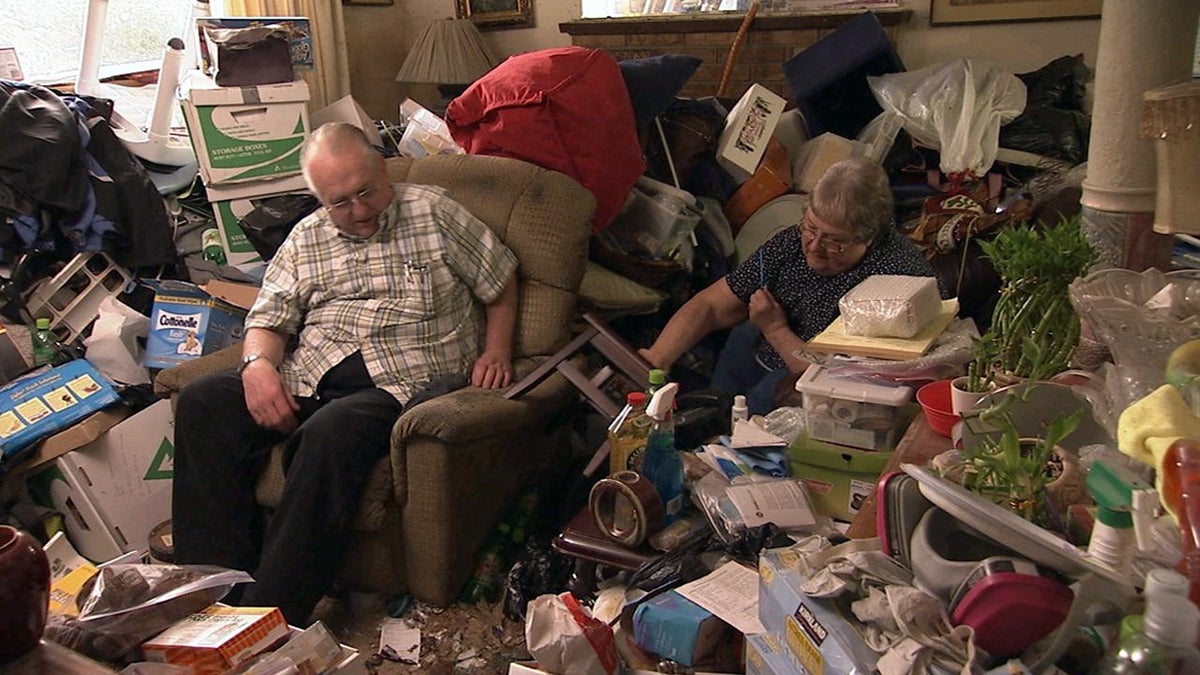Reaching out to help hoarders in Delaware

A man and his wife are shown in a scene from the season premiere of the show "Hoarders" (HO, Screaming Flea Productions/AP Photo, file)
Delaware is launching an effort to help people who are overwhelmed by their own possessions.
Christiana Care psychologist Alan Schwartz, a member of the state’s new hoarding task force, said it’s rare for someone who hoards to seek out his help. More often it’s a concerned — or frustrated — family member who calls him first.
When possessions pile up, family can be helpful by remembering that hoarders aren’t being difficult intentionally, Schwartz said.
“While all of our family members can be stubborn and irritable at times, this is really a problem,” he said. “This is psychiatric illness, this is a mental health disorder and, to some extent, people don’t have control of their behavior.”
Nationally, perhaps 2 percent to 4 percent of the population has a hoarding disorder.
Delaware task force members will work to determine how many local people are struggling. Another goal is to support Delawareans so they can stay in their own home.
In extreme hoarding cases, unsteady piles of paper or moldy food can make a house unsafe, said social worker and task force organizer Gail Weinberg.
“Hoarding is kind of a secretive issue,” she said. “It makes people more isolated.”
Delaware’s Division of Public Health is bringing together experts with firsthand experience. Among them, firefighters, housing-code officers and workers from the Delaware Society for the Prevention of Cruelty to Animals are learning to recognize hoarding.
Compulsion to keep everything from newspapers to cats
Hoarders have difficulty discarding things regardless of their value.
Animal-cruelty investigator Frank Galbraith said he often goes into a home and finds too many animals — and lots more. One woman had collected years and years worth of newspapers and clothes, as well as 10 cats.
Sometimes the disorder manifests as animal hoarding, when someone accumulates a large number of pets without having the ability to care for them.
“A lot of them are very compassionate individuals, they actually really do care for the animals,” Galbraith said. “But, unfortunately, in keeping so many animals, it gets pretty exhausting.”
He tries to link people with mental health help, but that’s not his job and those discussions can be difficult.
“They usually don’t go very well, it’s very hard to help them realize they do have an issue,” Galbraith said.
In New Castle County, the Delaware SPCA intervened in 10 to 15 animal-hoarding cases in 2013. SPCA director Al Mollica says each case –and each story — is different, but he’s noticed a common sense of loss.
“Most recently we had an individual who was involved in animal hoarding who had two miscarriages and a divorce over the span of about two or three years,” he said. “After each one of those losses, the compulsion to hoard became greater and greater.”
When reality TV shows over-the-top portrayals of hoarding, it’s hard to believe anyone could live that way, but Schwartz said research suggests that people who hoard may process information differently — and actually not pay attention to things in the same way other people do.
Some mental health experts work to treat attention problems first before offering extreme collectors more focused help with hoarding.
WHYY is your source for fact-based, in-depth journalism and information. As a nonprofit organization, we rely on financial support from readers like you. Please give today.

